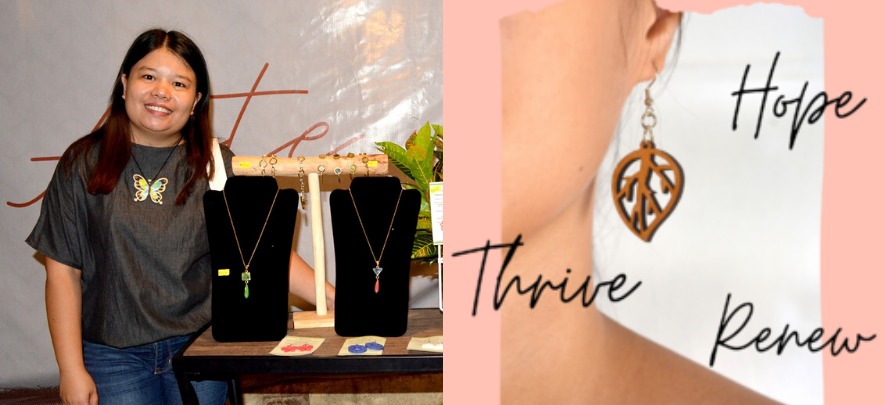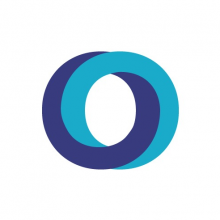From teacher to entrepreneur: How she finds success in exporting

SME Inspirations
261 week ago — 10 min read
Enterprise: Crissander Enterprises
Founder: Crispina Singh
Industry: Fashion & Fashion Accessories
Year it was founded: 2012
Location: Bohol, Philippines
After realizing the huge demand for wood accessories in the international markets, Crispina Singh, together with her husband and cousin, started Crissander Enterprises, a manufacturer and exporter of handmade accessories and gifts. They have a wide collection of wooden handicraft accessories including earrings, bangles, and necklaces.
Despite having no prior background in fashion, Crispina, a computer engineering graduate and a former teacher, did not let circumstances hinder her dream to have a business. She equipped herself through researching and studying the market, and grasped what she can to fully understand the fashion the industry – or at least understand what she’s getting into.
Yet, her business did not go smoothly during its early years. “It’s difficult at first. We tried selling our products in the USA, but it didn’t work. Perhaps it’s because we don’t have the knowledge when it comes to the latest trends in fashion at that time,” Crispina shares.
Until in 2016, they captured the attention of the Department of Trade and Industry – Region 7 (DTI-R7). Seeing their potential, the DTI-R7 provided necessary tools and mentorship to help Crispina and her business thrive.
“They help us with product development. They provided industrial designers to help us improve our products. They even chose our products to represent the Philippines in a global fashion show in Hong Kong,” Crispina explains.
In conversation with GlobalLinker (GL), Crispina Singh (CS) shares the key ingredients behind the success of her business. She highlights the importance of being innovative to remain competitive in the industry. She also shares valuable tips on how your business can survive the pandemic.
GL: How did you start your business?
CS: Women in America and Africa are used to wearing big earrings at that time so my husband told me if we can make our own earrings.
We tried to find suppliers in Cebu since they are good at making handcraft products made out of woods. But at that time (2012), we are having a hard time looking for suppliers for big earrings so we decided to produce it on our own.
It’s hard at first because I don’t have any idea on how to make accessories from a piece of wood.
I don’t have any knowledge of making it because my background is in computer engineering and making fashion accessories is far from my experience. But together with my cousin, we tried researching how to produce fashion accessories out of wood.
GL: Your background is computer engineering. And to thrive in the fashion industry with limited knowledge can be challenging. Aside from researching, what did you do to make sure your products stand out from the rest?
CS: Since we started with the DTI, they really helped us with the product design and development. They provided industrial designers who helped us in improving the designs of our products.
GL: If you were to compare your business before DTI’s intervention, what are the changes?
CS: Before DTI, we knew we had potential (to grow), but it was not really fully realized until DTI guided us with product development and mentorship.
Also read: DTI eyes to disburse P1-B loan to micro, small businesses by end-July
GL: Aside from managing your business, do you have any other source of income?
CS: Right now, I freelance and have trained someone to take over my tasks so I will just monitor and perform quality checks. In this way, I have enough time to manage other business activities.
GL: How many employees do you have now?
CS: We have currently eight full-time employees and I hire consultants to help us with designs. I also now get to do the designs using a laser machine which is possible with the help of DOST (Department of Science and Technology).
GL: So aside from handcrafted products, you’re now incorporating technology to your business?
CS: Yes, with the help of DOST, we managed to create products using a laser machine. So our current products are mixed with handcrafted and technology-based products.
You really need to innovate especially if you are in the fashion industry. One really needs to innovate to remain competitive.
GL: What are your challenges in managing your business?
CS: We’re having a hard time trying to look for skilled workers because right now they are is limited. Having many competitors in the fashion industry is also a challenge.
GL: How are you facing these challenges?
CS: My cousin who has been with me from the start is working hard to find skilled workers. He goes to different places just to find talents.
GL: How about the competition?
CS: To beat the competition, we need to be different. We strive to make unique products. For example, we upcycle plastic sheets and incorporate them into our wood products.
With GlobalLinker, we built our own eCommerce store for free. We are using it for marketing. Especially this pandemic, we need to be in the eCommerce space for us to survive.
GL: Who are your clients? Where do you usually sell your products?
CS: Mostly, we export our products to the USA. Our products are also available at local malls like Rustan’s.
See offer: Get 10% off on Export Services
GL: How did you find international clients?
CS: By joining national trade fairs, we were able to gain buyers. My husband is based in the USA and is helping as well to look for buyers there/increase our buyer network.
GL: With the COVID-19 pandemic, we’re navigating to the new normal. What are your plans moving forward?
CS: To be honest, we’re really struggling since our main customers are tourists. With the closure of everything, it is really hard for us since our products are not really essential during this time. This is really a big impact since people don’t need fashion accessories for now and are focusing on purchasing essential products.
What we do is just for us to survive. We have produced masks and face shields which are essential at this time just to at least pay for our operational expenses.
GL: Are your workers still working with you in this challenging period?
CS: Yes. In the first month of (lockdown), we did not have any sales. But if (I let them go), they will have a hard time. So what I did is to continue giving them work. Since our products are non-essential, we spend our time developing and enhancing our products. Like right now, we observed that people are exploring to gardening, we are hence trying to develop planters as our product.
We are not giving up. That’s why we are still here trying to keep developing. We’re adding more and more products that are essential now so we can pay for the operating expenses of the business.
GL: So your strategy is to add essential products for your business to survive, right?
CS: Yes, because if we will just focus on making accessories, we will not survive this crisis. People don’t need these items for now so we have to develop new products and adapt to changes.
GL: How does UnionBank GlobalLinker help you so far?
CS: Actually, we already had a website before GlobalLinker. I joined an e-commerce seminar, which helped me in making my own website. But I had a hard time with the website because of security and other issues. One time, one of my customers told me that there’s a virus on the website something that I don’t know how it happened.
With GlobalLinker, we built our own eCommerce store for free and they (GlobalLinker staffs) assisted us right from the beginning. We are using it for marketing. Especially this pandemic, we need to be in the e-commerce space for us to survive as this is the trend now.
Also read: Going digital is the future of business
GL: What have you learned from managing your business for eight years?
CS: First, I learned that you really need to innovate especially if you are in the fashion industry. One really needs to innovate to remain competitive.
GL: So what are your tips or advice for aspiring entrepreneurs?
CS: Doing business is not easy. I had a hard time at first and I’m still having a hard time now. We were not prepared for the pandemic and did not expect that it’s going to hit us so hard. Everything we’ve worked for has to stop for now.
So to be prepared (in crisis), for me, you should have at least 4-6 months operating expenses ready so you can still survive in case of unforeseen circumstances.
Be patient, work hard, and put your heart in the business. If you care for your people, then you’ll be blessed.
To explore business opportunities, link with Crispina Singh by clicking on the 'Connect' button on his profile.
Disclaimer: This article is based solely on the inputs shared by the featured member. GlobalLinker does not necessarily endorse the views, opinions & facts stated by the members
Network with SMEs mentioned in this article
View GlobalLinker 's profile
Most read this week











Comments
Share this content
Please login or Register to join the discussion